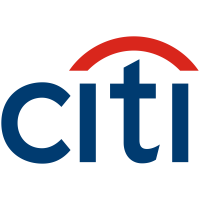
Citigroup Inc
NYSE:C

Citigroup Inc





In the bustling world of global finance, Citigroup Inc. stands as a towering figure, weaving its influence through an intricate tapestry of banking services that transcend borders. Born from the fusion of banking giants in 1998, Citigroup emerged as a formidable player by marrying the retail banking prowess of Citicorp with the expansive reach of Travelers Group. This union not only strengthened its commercial banking capabilities but also expanded its fingers into the lucrative realms of investment banking, wealth management, and securities services. At the heart of Citigroup's operation lies its dual functionality: serving the financial needs of corporations and individuals while managing a substantial share of international transactions and investment activity. With an extensive network spanning over 100 countries, Citigroup generates revenue by channeling funds into avenues such as consumer banking, which caters to day-to-day financial services, credit cards, and loans, and institutional clients, providing solutions including treasury and trade, markets, and investor services.
Strategically, Citigroup maneuvers through a financial landscape governed by both acute risks and rewarding opportunities, banking on its diversified structure to bolster resilience. Its Global Consumer Banking unit captures everyday consumers, offering retail banking and credit card services, crucial in driving stable revenue inflows. Meanwhile, its Institutional Clients Group engages in more sophisticated banking activities like investment banking and advisory services, a segment that becomes a powerful engine of profit by facilitating securities trading, and underwriting, and providing strategic financial advice. This multi-pronged approach has enabled Citigroup to capitalize on economies of scale and a broad client base, leveraging its expansive global footprint to remain nimble amidst economic cycles and regulatory shifts. As a custodian of trillions in assets under administration, Citigroup continues to play a pivotal role in lubricating the cogs of global commerce, while navigating the complexities and challenges inherent in the financial sector.
Earnings Calls
Management

Jane Fraser is a prominent financial executive known for her role at Citigroup Inc. She made history by becoming the first woman to lead a major Wall Street bank when she was appointed CEO of Citigroup in March 2021. Before her promotion to CEO, Fraser served in various significant roles within the company, which she joined in 2004. Fraser has held key leadership positions within Citigroup, including CEO of Citigroup Latin America and CEO of the U.S. Consumer and Commercial Banking and CitiMortgage. Her diverse experience within the bank also includes her roles as CEO of the Private Bank and Global Head of Strategy and Mergers & Acquisitions. Jane Fraser was born in Scotland and earned a Master of Arts in economics from Girton College, Cambridge, and an MBA from Harvard Business School. Before joining Citigroup, she worked at Goldman Sachs and McKinsey & Company, where she gained substantial experience in the financial sector. Throughout her career, Fraser has been recognized for her leadership qualities and her work towards promoting diversity and inclusion within the financial industry. As CEO, she focuses on steering Citigroup through digital transformation while addressing regulatory challenges. Her appointment as CEO marked a significant milestone for gender representation in finance.

Mark A.L. Mason is an accomplished executive in the financial industry, currently serving as the Chief Financial Officer (CFO) of Citigroup Inc., one of the world's largest financial services companies. Mark Mason was appointed CFO in February 2019. In this role, he is responsible for the financial management of the firm, including financial reporting, planning and analysis, treasury, tax, investor relations, and capital management. Before becoming CFO, Mason held various significant positions within Citigroup. He served as the CEO of Citi Private Bank and was Chief Financial Officer and Head of Strategy and M&A for Citi's Institutional Clients Group. Mark Mason also played a critical role as the Chief Operating Officer of Citi's Institutional Clients Group. Prior to joining Citigroup, Mason worked at Lucent Technologies, where he held several financial positions, and he also worked at Marakon Associates, a strategy consulting firm. Mason holds a Bachelor of Business Administration degree from Howard University, and an MBA from Harvard Business School. Throughout his career, he has been known for his strategic thinking, financial acumen, and leadership skills, contributing to Citigroup's growth and stability. His extensive experience in various financial and strategic roles has made him a key figure in navigating the complex financial landscape for Citigroup.

Anand Selvakesari is a prominent executive at Citigroup Inc., serving as the Chief Executive Officer of Personal Banking & Wealth Management. In this role, he is responsible for overseeing the strategic direction and operational management of Citi's personal banking and wealth management businesses globally. This includes managing retail banking, wealth management, and related services, focusing on providing a seamless and innovative customer experience. Selvakesari has a long-standing career at Citigroup, having held several key positions within the company. Prior to his current role, he was the Head of Consumer Banking for Asia Pacific, where he managed the consumer franchise across 17 markets in the region. His leadership was instrumental in enhancing digital capabilities and driving significant growth in Citigroup's consumer banking operations. With a background in engineering, Selvakesari started his career at Citi in India and has accumulated extensive experience across diverse markets, including Asia, Europe, the Middle East, and Africa. His career trajectory is marked by a commitment to driving digital transformation and leveraging technology to improve customer experiences and operational efficiencies. Known for his strategic vision and ability to drive change, Anand Selvakesari continues to play a crucial role in shaping Citi’s approach to modern banking and wealth management, ensuring alignment with contemporary consumer needs and expectations.
As of my latest update, there is no publicly available biography of an individual named Andrew J. Morton who holds or held an executive position at Citigroup Inc. It's possible that he may not be a publicly recognized figure within the organization, or he may not have held a prominent role that is well-documented in publicly available sources. For more detailed or specific information, you might consider checking Citigroup's official releases or press statements.

Andrew Mason Sieg is a prominent figure in the financial services industry, currently serving as the Chief Executive Officer of Citi Global Wealth, a part of Citigroup Inc. He joined Citigroup in 2023, bringing with him a wealth of experience and a strong track record in wealth management. Before his role at Citigroup, Sieg spent a significant portion of his career at Merrill Lynch Wealth Management, part of Bank of America, where he held various leadership positions over the years. Sieg is known for his strategic vision and expertise in wealth management, focusing on integrating digital advancements and personal client relationships. Throughout his career, he has been an advocate for innovation in financial services, emphasizing the importance of adapting new technologies to enhance client experiences and support advisors. He also stresses the importance of diversity and inclusion within the financial sector, aiming to create an environment where diverse talents can thrive. His leadership at Citi Global Wealth involves overseeing the wealth management division, aiming to provide comprehensive financial services to clients across the globe. Under his guidance, Citigroup's wealth management segment is expected to expand its offerings and continue its focus on delivering tailored solutions to meet the complex needs of high-net-worth clients. Andrew Mason Sieg's career reflects his commitment to advancing the field of wealth management through a blend of technology and human-centric service, positioning him as a key leader in the financial services industry.
David R. Bailin serves as the Chief Investment Officer (CIO) and Global Head of Investments at Citi Global Wealth, a division within Citigroup Inc. He plays a critical role in overseeing investment strategies and offerings across Citi’s private banking and wealth management platforms. Bailin is responsible for defining the firm’s investment philosophy, ensuring the alignment of its products and services with market opportunities, and guiding clients in developing and managing their investment portfolios. Prior to his role at Citi Global Wealth, Bailin held several significant positions at reputable financial institutions. He has extensive experience in the investment industry, working in senior roles related to wealth management and private banking. His expertise is well-regarded, and he frequently provides insight into global economic trends and investment strategies. Bailin also contributes to fostering a culture of innovation and excellence within Citigroup’s investment arm, and he is involved in articulating the firm’s investment perspectives to a global audience through various channels. He holds an undergraduate degree from Amherst College and has built a robust career through his strategic vision and leadership in financial services.

Robert (Bob) Walsh was an executive at Citigroup Inc., where he played a significant role in the company's operations and strategic direction. With a career spanning several decades in the financial sector, Walsh brought extensive experience in banking and financial services. Before his time at Citigroup, he held various leadership positions within the company, contributing to areas such as corporate banking, risk management, and strategy development. His expertise was instrumental in navigating the complexities of the global financial landscape and supporting Citigroup's mission to provide comprehensive financial services to its clients worldwide. Throughout his tenure, Walsh was known for his forward-thinking approach and commitment to fostering a culture of innovation and efficiency within the organization.

Achintya Mangla is a senior executive at Citigroup Inc., where he has played a significant role in the bank's operations and strategic initiatives. He notably serves as the Co-Head of Banking, Capital Markets, and Advisory (BCMA) for Europe, the Middle East, and Africa (EMEA). In this role, he is responsible for overseeing and managing the bank's investment banking activities across these regions, which includes various functions such as mergers and acquisitions, capital raising, and advisory services. With a career spanning over two decades in the banking industry, Mangla has garnered extensive experience in global markets and has been integral in driving growth and innovation within Citigroup. His leadership is characterized by his commitment to fostering client relationships, promoting strategic partnerships, and leading significant transactions in the EMEA region. Before assuming his current role, Mangla held various key positions at Citi, which helped him build a robust understanding of both regional and international financial markets. His contributions have been crucial in strengthening Citi's presence and competitiveness in the investment banking sector.

Tim Ryan is an accomplished executive with extensive experience in financial services and public policy. He serves as a senior leader at Citigroup Inc., one of the largest financial institutions in the world. Before joining Citigroup, Ryan had a distinguished career that included various leadership roles. Ryan previously served as the President and CEO of the Securities Industry and Financial Markets Association (SIFMA), where he played a key role in representing the U.S. securities industry. Additionally, he held the position of Vice Chairman of Financial Institutions and Governments at JPMorgan Chase & Co., offering strategic advice across a range of financial sectors. He also has experience in public policy from his time as the Director of the Office of Thrift Supervision in the U.S. Department of the Treasury, where he was involved in regulating the nation's savings and loan industry. Throughout his career, Ryan has been recognized for his expertise in financial regulations, risk management, and economic policy, making him a respected figure in the finance industry.

Jennifer Landis is a key executive at Citigroup Inc., where she has significantly contributed to the bank's strategic and operational advancements. As a senior leader, she plays a crucial role in shaping the company's policies and initiatives. Her expertise spans various facets of financial services, and she is known for her strategic insight and leadership skills. At Citigroup, she has been instrumental in driving diverse projects that align with the company's goals, including technological innovation and customer-focused strategies. Her work emphasizes the importance of maintaining robust financial practices while fostering an inclusive and forward-thinking corporate culture.

















































 You don't have any saved screeners yet
You don't have any saved screeners yet
